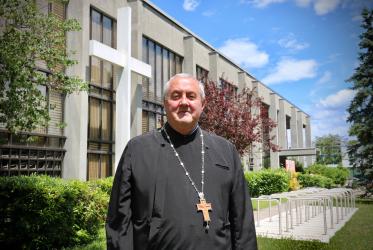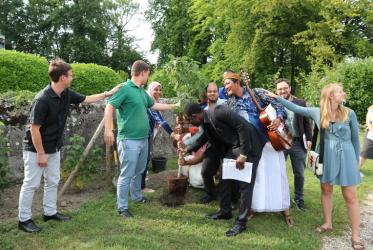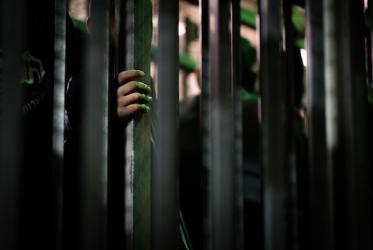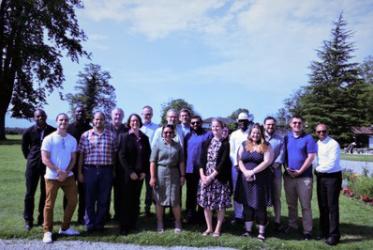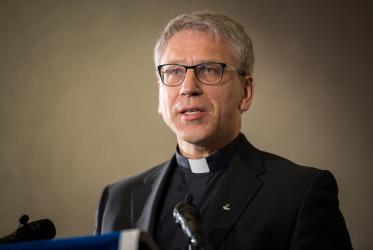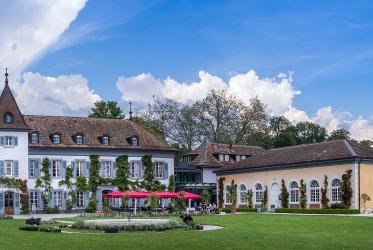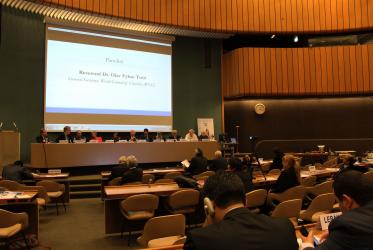Displaying 1 - 20 of 47
01 February 2022
Bossey students explore the meaning of “belonging”
22 July 2019
Bossey gathers students for interreligious dialogue
02 July 2019
Tveit: “We are called to embrace the gifts of the others”
07 November 2017
WCC students study what makes a peace communicator
18 July 2017
Islam and Christianity: finding the common ground
16 March 2017
An interview with the Ethiopian Patriarch, Abune Matthias
14 February 2017


